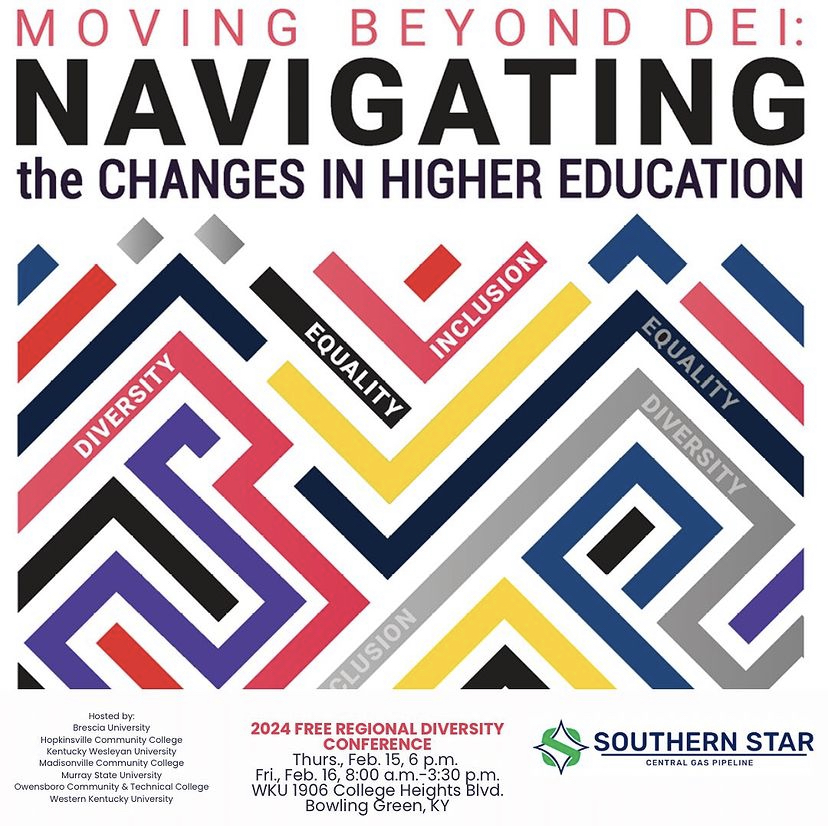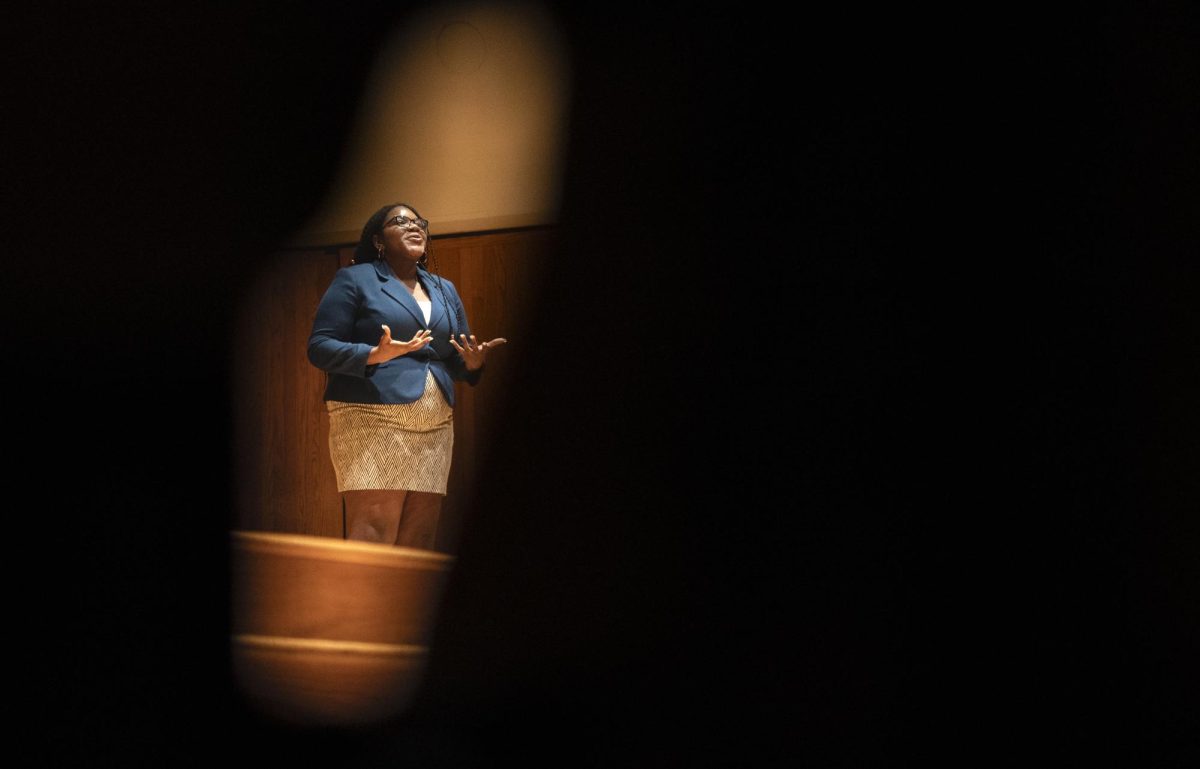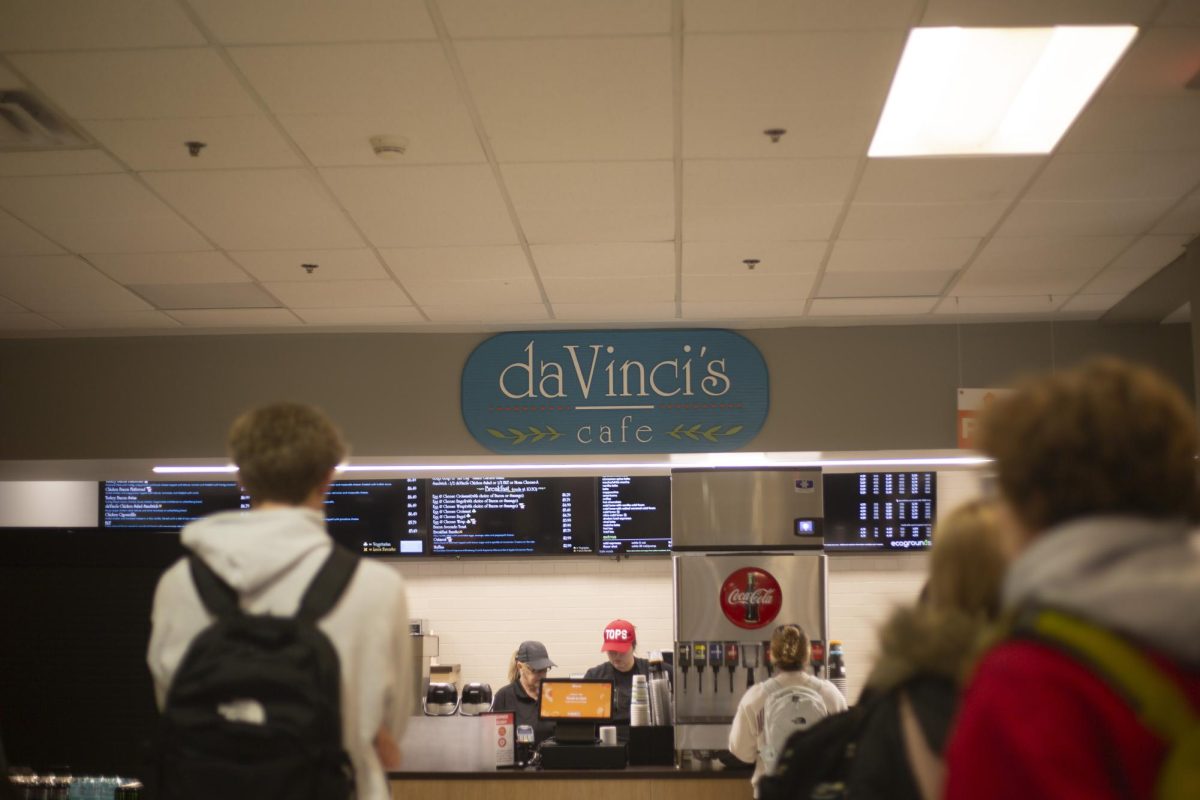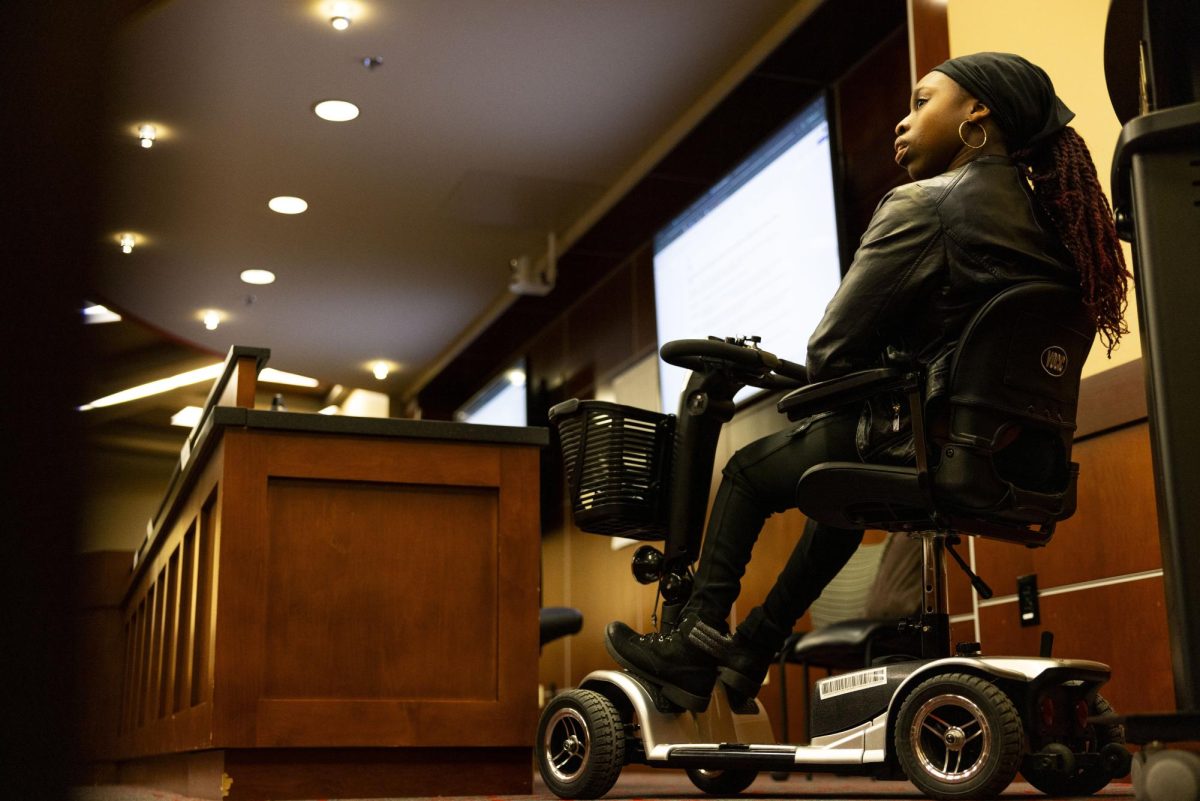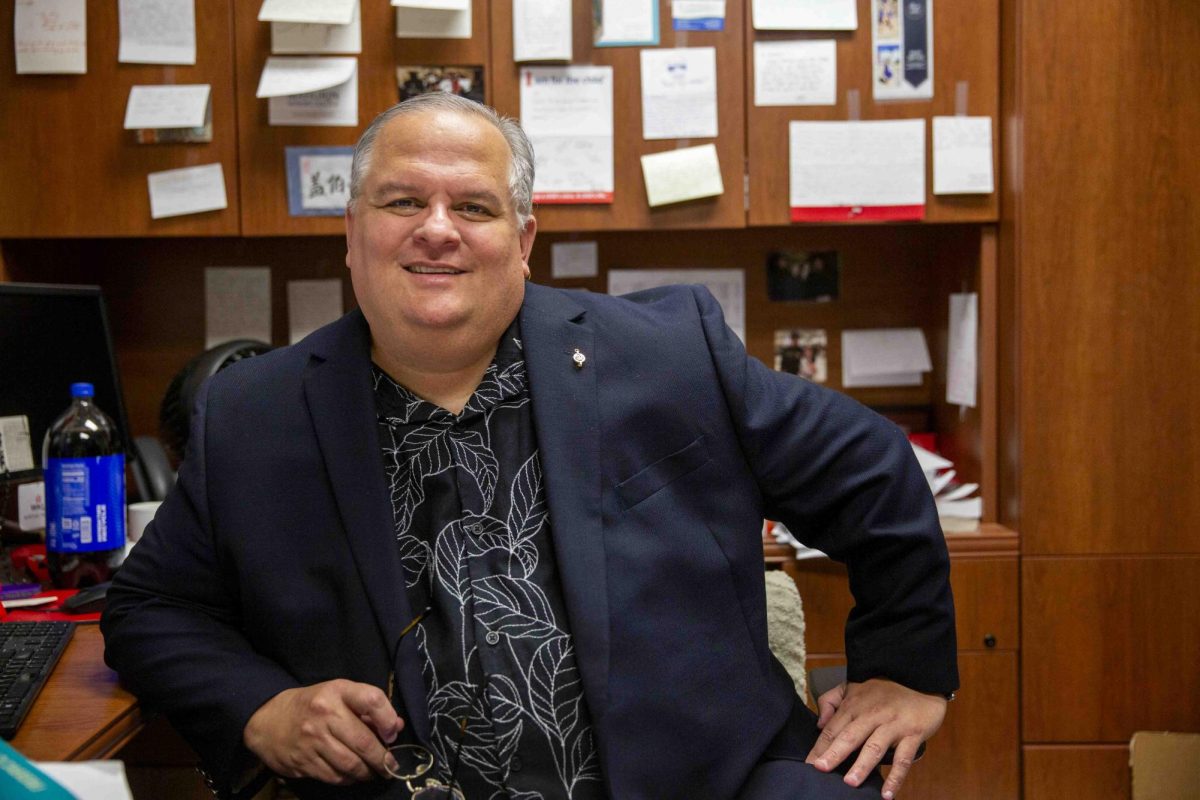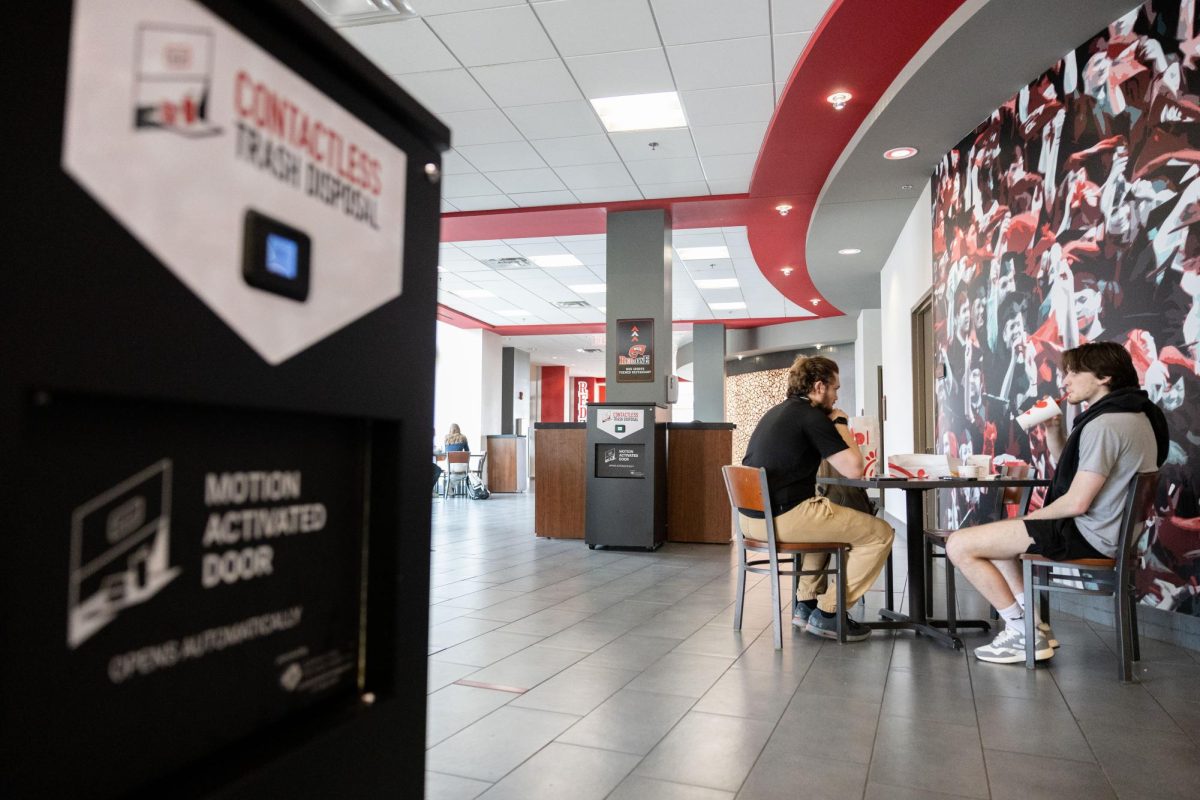Editors’ note: A previous version of this story named the Intercultural Student Engagement Center as the host of the Regional Diversity Conference. The Herald regrets this error.
WKU hosted the 2nd annual Regional Diversity Conference Friday, Feb. 16.
Seven colleges and universities throughout Kentucky collaborated to bring this conference together. This year’s topic was “Moving Beyond D.E.I.: Navigating the Changes in Higher Education.”
“D.E.I. has many definitions,” Lamario Moore, assistant director of ISEC at Western Kentucky University and co-host of the “Moving Beyond D.E.I.” Conference said. “The most known is diversity, equity and inclusion. Bringing people to the table, making sure they feel included at that table, and making sure there’s an equal playing field while they’re at that table.”
On Tuesday, Feb. 13, the Kentucky Senate approved Senate Bill 6, which states that Kentucky’s public colleges and universities could not ask students or staff to endorse certain concepts that the bill describes as “discriminatory.”
Jennifer Breiwa Smith, executive director of government and external relations at WKU, serves as a legislative liaison working with members of the Kentucky General Assembly and the United States Congress. During the conference, she explained SB 6 and HB 9 and the impact they will have on education programs.
“A public post-secondary education institution shall not require a course that presents one or more discriminatory concepts as fact,” Smith explained. “Or otherwise advocates for any individual to assent to or support one or more discriminatory concepts as a prerequisite program requirement or general education course.”
Opponents of SB 6 make the argument that it would impede academic freedom and make campuses less welcoming to ethnic minorities and other underrepresented groups.
BreMonte Carpenter, founding director of Khaos Dance Team and residence hall director for the University of Louisville, shared his opinions on SB 6 and House Bill 9.
“I think we have worked extremely hard to make D.E.I. very relevant,” Carpenter said. “We have worked extremely hard to teach and educate our students about D.E.I. and I think with the bills being passed it will take away a lot of that knowledge as well as the funding available. For me specifically, if I wasn’t a part of those specific D.E.I. programs, I don’t know if I’d be as successful today or have the knowledge or competencies.”
Molly Kerby, assistant provost for institutional effectiveness and engagement, helped found ONE WKU, which embraces diversity by building equitable and inclusive learning, working and living environments on WKU’s campus.
“We started ONE WKU right in the middle of COVID-19, in 2020,” Kerby said. “It was our idea to make WKU an inclusive campus where everyone belongs. To build on that, we had deliberate dialogues, book clubs, lunch and learns about all kinds of topics: neurodiversity, race, ethnicity, sexual orientation, gender identity, low-income, and first-generation college students so that everyone feels like they have a place on WKU’s campus.”
Ashley Holland, assistant professor of education and chair of the School of Education at Brescia University, was able to share her expectations of the 2nd annual Regional Diversity Conference and explanation of SB 6 and HB 9.
“I’m just grateful for an opportunity like this. Sometimes these conversations can be a challenge to have,” Holland said. “I know that the demographics that I tend to have as a student body are not as diverse as what the population they’re going to be teaching. I’m hoping that what I can walk away with is some of the insight on how to open their perspectives for whenever they become an educator themselves.”
News Reporter David Campos-Contreras can be reached at david.campos-contreras707@topper.wku.edu.


